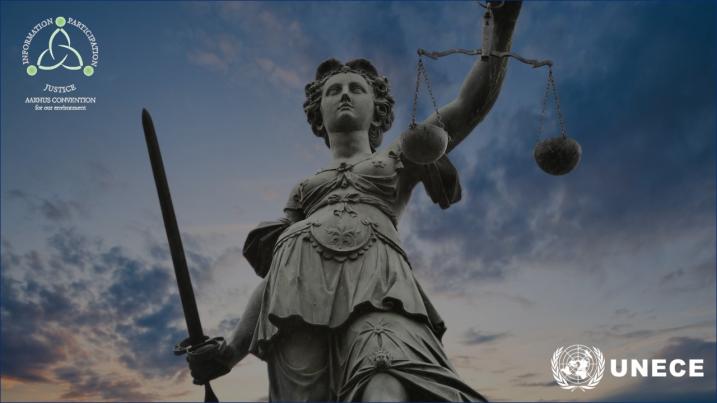Background
The fourteenth meeting of the Task Force on Access to Justice took place from 27 April 2022 (afternoon) to 28 April 2022 in Geneva (Palais des Nations, Tempus 3).
The Task Force aimed to provide a platform for exchanging information, experiences and good practices with regard to key recent developments in the implementation of the Convention’s pillar on access to justice and possible measures to remove barriers hampering its implementation.
The thematic sessions of the meeting focused on access to justice in cases related to spatial planning and in energy-related cases. The Task Force discussed current trends, good practices, barriers, challenges, and innovative approaches in these areas. The delegates also took stock of recent and upcoming developments regarding (a) public interest litigation and collective redress; (b) standing; (c) timeliness; and (d) costs and access to assistance mechanisms. Furthermore, the Task Force also considered tools to promote effective access to justice such as (a) dissemination of information on access to review procedures, collection of relevant data and statistics and access to relevant case law using e-justice initiatives, modern digital technologies and other tools; (b) specialization of judiciary and other legal professionals in environmental law; and (c) measures to discourage strategic lawsuits against public participation (SLAPP).
The outcomes of the meeting are expected to support countries’ efforts in the implementation of Sustainable Development Goals, in particular Sustainable Development Goal 16 and its target 16.3 (Promote the rule of law at the national and international levels and ensure equal access to justice for all).
Hashtags for the meeting @UNECEAarhus: #AarhusConvention, #AccesstoJustice, #SDG16
The meeting was preceded by 2022 Judicial Colloquium (Geneva, 26-27 (morning) April 2022) for representatives of judiciary, judicial training institutions and other review bodies.
You are kindly invited to take part in the survey launched under the auspices of the Task Force on Access to Justice at this meeting. Please complete and return the attached questionnaire to the following email address: aarhus.survey[at]un.org with the subject line “TFAJ survey from [name of country, organization]” before 1 November 2022. Further information can be found on the following webpage: https://unece.org/env/pp/analytical-studies-on-access-to-justice
For additional enquiries about the meeting, please contact the secretariat at public.participation[at]un.org .


